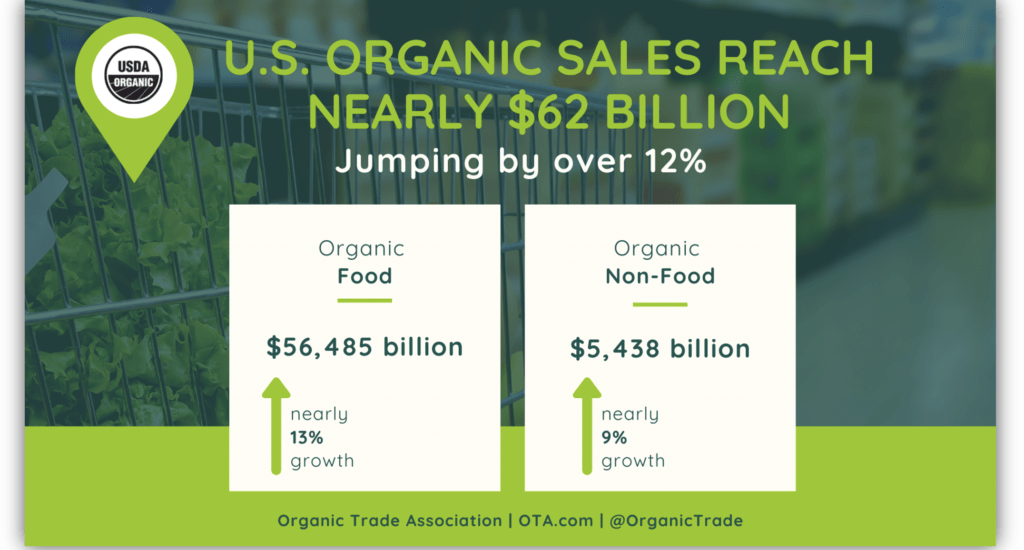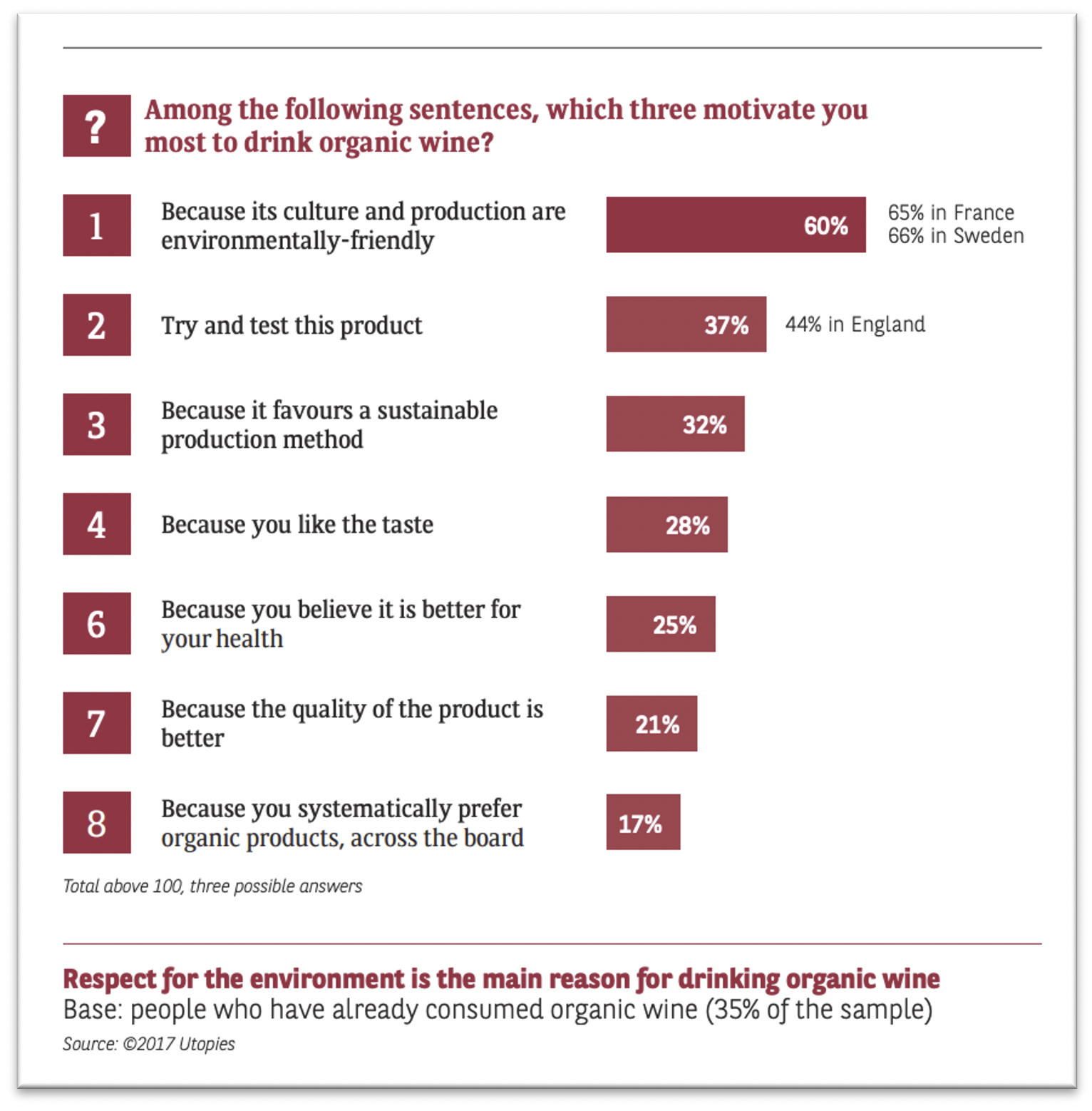As U.S. domestic wines continue to catch up with the growth in demand for Organic Wines; internationally produced organic wines are increasingly becoming wine consumers’ drink of choice. As context for the growth in this category, U.S. consumption of organic wines has increased between 10% to 20% per year (Nielsen), far above the industry average.

While Organic Wine consumption remains a small percentage of overall wine consumption, the growth in the number of consumers turning to organic food and beverages is astounding. Organic food and beverages can be found in the kitchens of more than 82% of American households (Nielsen and Organic Trade Association findings). And, of those consumers 65% have changed their behavior in favor of buying organic whenever possible.
Additionally, COVID accelerated the organic purchasing trend. “In a time of deep concern for personal health, during which daily life was remade by a global pandemic, both the organic food and non-food markets eclipsed major milestones.” – Organic Trade Association
Given these facts, it is safe to say that organic is no longer a trend but has emerged as a way of life that is here for the long term.

Who and what is driving these impressive figures? Mostly Millennials and GenZ. 52% of organic consumers are Millennials.
For Millennials, organic products (food, beverages, skincare, beauty products) fit their values and attitudes. They value sustainability and purpose when choosing products and brands. In a recent study by Utopies, 60% of organic wine drinkers cited “Its (organic wine) culture and production are environmentally friendly” as the key motivation to drink organic wine.
Convenience and value also play an important role in consumers’ buying habits. COVID accelerated the need for convenience and contributed to the rise in e-commerce sales, including DTC wine sales.
Millennials value their time. Convenient delivery or pick up options are viewed as essential. Another must for most Millennials and the emerging GenZ audience is value. This is another advantage international organic wines have over US domestic organic wines. 96% of US wine consumers, on average, spend less than $30 on a bottle of wine. Most international organic wines fall within the $30 and under range.
Along with the rise of organic, alternative packaging options are growing in popularity.
Glass bottles have been a traditional medium of packaging of organic wine. However, the advantages of plastic bottles and box options, such as ease and convenience of handling, add to their demand for organic wine packaging. And, like so many other beverage categories, can options are being driven by consumer preferences for convenient, single serve alcohol beverages.
One of the biggest challenges facing the Organic Wine market is educating consumers on category terminology. Organic remains the most understood of the numerous descriptors found on labels, store shelves, websites, marketing messaging, social media and chat rooms. However, the scope of the terminology currently used can be baffling, inaccurate and off-putting to consumers.
- Organic
- Biodynamic
- Natural
- Vegan
- Orange
- Sustainably produced
- Environmentally friendly
- Fairtrade
- Preservative-free
The key is not to elaborate or use terminology beyond what is true. To be transparent, but accurate. This is as much true for wineries as it is for those selling organic wine in grocery stores, specialty wine shops, or online marketplaces. For Millennials transparency not only encompasses provenance but also ingredients and the production process.
As the demand for Organic Wines grows the winning brands will be those who build trust among the consumer base by not only producing a great tasting organic wine, but also by acting as ambassadors for the category, educating consumers, and being transparent about their provenance, ingredients, and production process. And, as we all know, trust leads to loyalty, and loyalty leads to healthy lifetime value and success.

